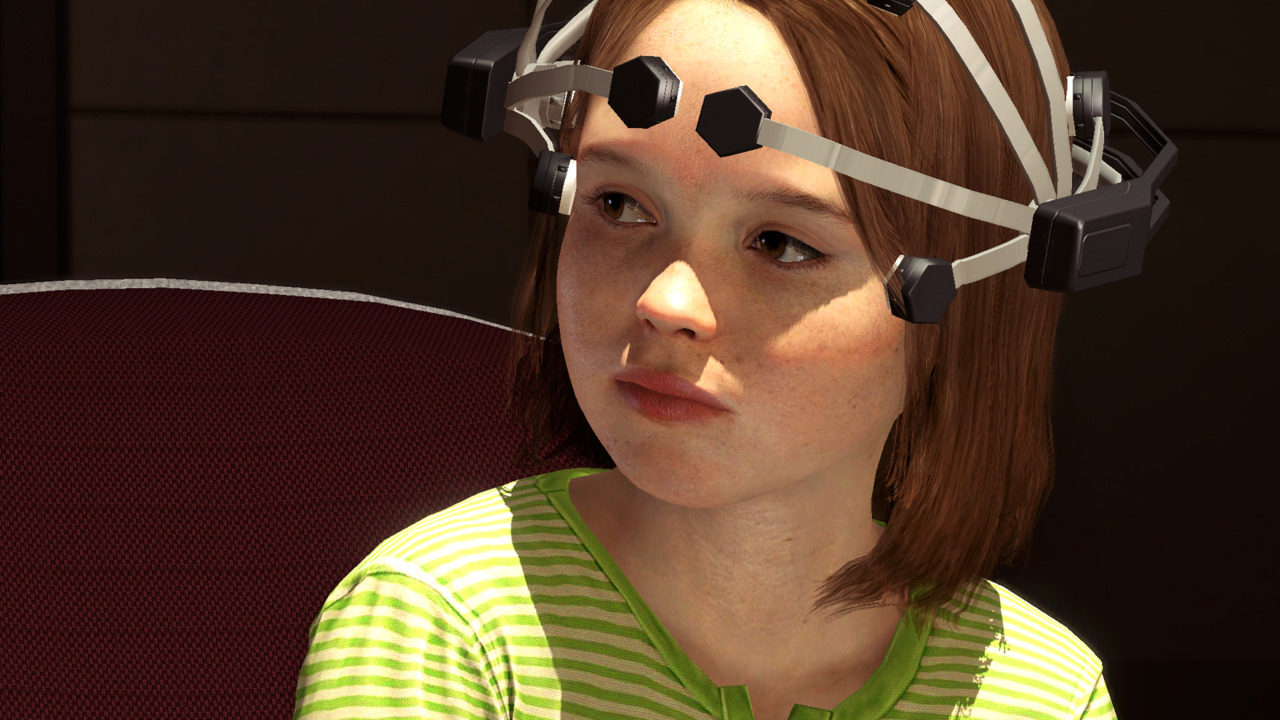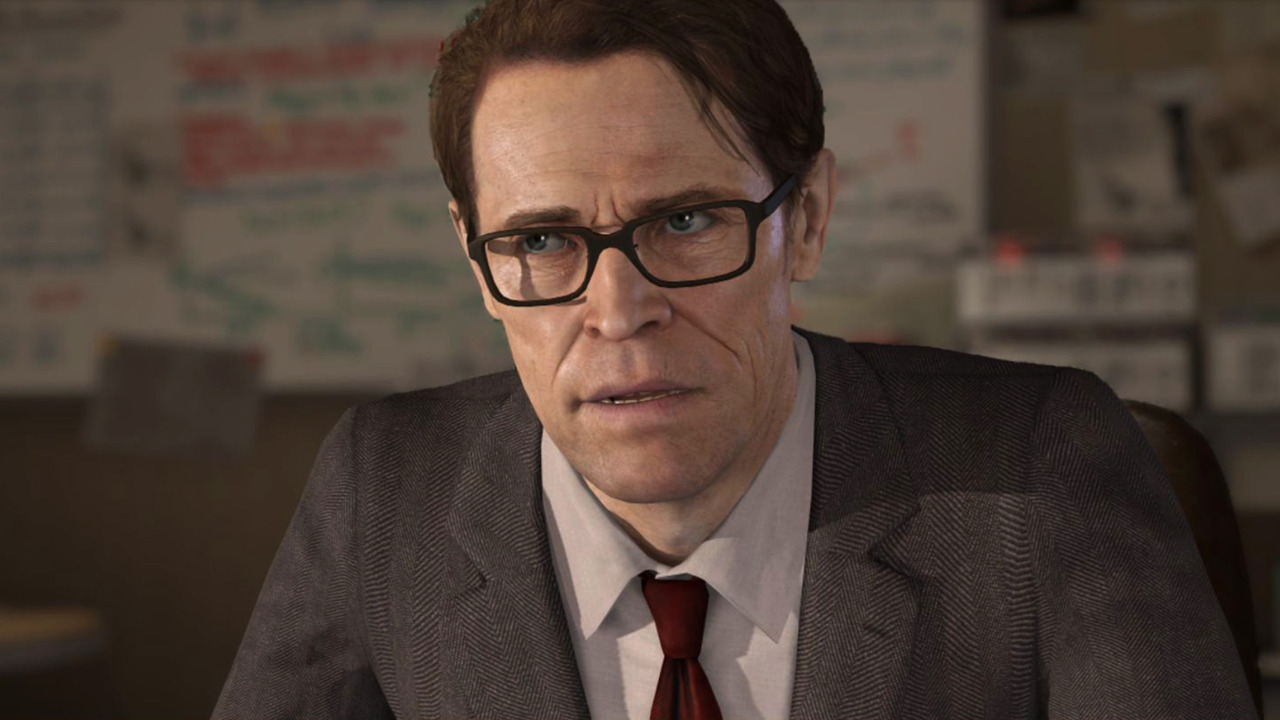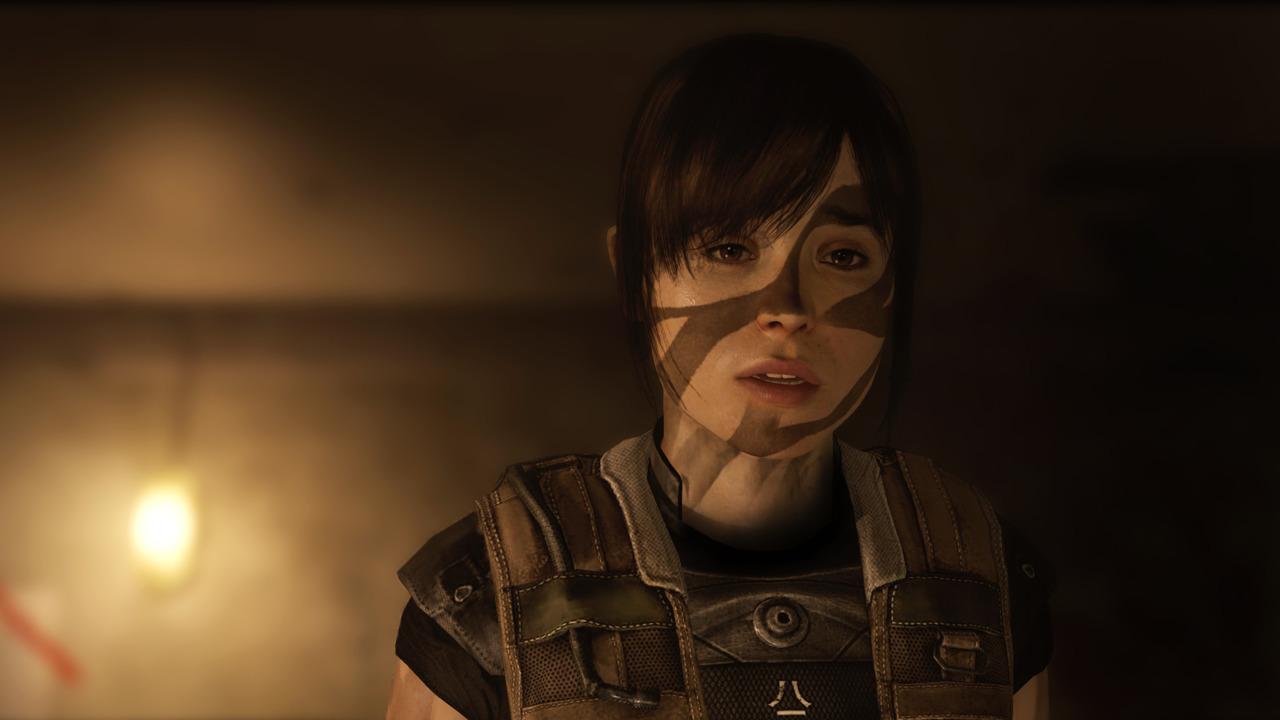Beyond: Two Souls--A Life Out of Sequence
The upcoming game from David Cage has big narrative ambitions, and attempts to seamlessly integrate your choices into the tale it tells.
"It's about growing, it's about learning, it's about accepting who you are. It's about mourning, it's about death, and it's about what's on the other side." So said David Cage of his new game, Beyond: Two Souls. Like his previous game, Heavy Rain, Beyond is a story he's attempting to tell not through noninteractive cutscenes, but through gameplay. Here, though, his goal has been to make your choices feel more organic so that you're not so much responding to obvious prompts in the environment as you are just moving around and acting according to your own whims, with the story taking your actions, and your successes and failures, into account.
I had a chance to play a few scenes from Beyond recently, and to talk to Cage about the game. The first scene I played was called The Experiment, and in it, I controlled the 8-year-old Jodie Holmes, who the game follows throughout a 15-year span from childhood to adulthood. Jodie isn't like other children; she's tethered to a mysterious spiritual entity named Aiden, who sometimes acts as her friend and protector. As Cage put it, however, "he can be very jealous, very possessive, sometimes even very violent. He doesn't really understand the rules of our world, and he just behaves sometimes like a wild beast." I got to see this side of Aiden during the scene.
I sent papers flying. I flipped tables over. I destroyed cameras and smashed windows, and it all felt like a natural and cathartic expression of rage at the way Jodie was being treated not like a normal child but a scientific curiosity.I watched as the young Jodie was escorted by scientists to a table in an observation room and a contraption was placed on her head. On the table in front of her were cards with symbols on them, and in an adjacent room, a woman was sitting at a table that had identical cards on it. That woman would choose a card, and then Jodie was instructed to identify which card she had chosen. Switching from Jodie to Aiden, I flew into the adjacent room, taking a moment to listen in on the scientists as they chatted with each other and to send subtle chills up their spines, before observing which card the woman had chosen, and then, as Jodie, identifying it. I could have chosen any card, and I was curious what would happen if I opted to repeatedly select the wrong card, but I was feeling inclined to demonstrate my unusual abilities to the scientists, so I complied with the goals of the test.
Eventually, I was asked if I could knock over some building blocks in the next room. Using Aiden's ability to unleash bursts of kinetic energy, I toppled the tiny blocks. Energized by this small display of force, I was curious to see what else I could do. I sent papers flying. I flipped tables over. I destroyed cameras and smashed windows, and it all felt like a natural and cathartic expression of rage at the way Jodie was being treated not like a normal child but a scientific curiosity.
One of the most impressive things about the scene was the performance from young Jodie, the way that, with a sad look in her eye or a subtle shake of her head, she communicated so much about how she felt, being treated this way. When I mentioned this to Cage, he nodded, and said of the actress who plays the 8-year-old Jodie, "She has a story. We met, and she had exactly the right look for the role, and she was taking acting lessons, but she had something a little bit sad in her eyes. I asked her, 'What does your father do?' And she told me he's a journalist. And [I asked], 'What does your mother do?' She said, 'My mother died two years ago.' And then I knew where the sadness came from. And what's horrible when you're a director is the fact that you tend to use these kinds of things. And I thought, OK, I mean, you're exactly what I'm looking for."
"How does it bring something new to the experience? How does it create this kind of macro-interactivity in a way where you need to connect dots and you need to play with the story at a macro level?"The other scene I played, called The Hunted, was more sprawling. As a somewhat older Jodie (now played by Ellen Page), I made a daring leap from a train to escape some pursuing police officers, ran through a murky forest in which I was pursued by dogs, and used Aiden to possess a shotgun-wielding cop to distract other police so that I could steal a motorcycle. I was eventually captured by police and put into an armored vehicle, at which point, as Aiden, I possessed one of the officers in the car and used his gun to kill the vehicle's driver, resulting in a spectacular crash. All the while, there were occasional Heavy Rain-style prompts indicating buttons I needed to push to open this or interact with that, but I was never presented with obvious, stark choices. That's not to say that there were no choices, however. As I watched other people play through the scene after I was done, I saw that for some of them, things played out very differently, with some of them ending up involved in a showdown on the streets of a small town that I never experienced.
What's especially intriguing about the fact that you make choices that influence the course of Beyond's narrative is that the game is structured nonsequentially. Though it spans 15 years in Jodie's life, you don't experience the events of those years in order. "Sometimes you have consequences before causes," Cage said. "Sometimes you have a bad relationship with a character and you wonder what happened, and it's only a couple of scenes later that you will understand what happened." It struck me that given both the impact that your choices can have and the nonsequential structure, it must have been very difficult to plot the game in such a way that its story always makes sense and is internally consistent.
When I asked Cage about this, he replied, "To tell the story of someone through 15 years of her life is already a challenge. But then, it was something interesting to do. I wrote the piece in chronological order, and then I tried to figure out how we could play with these different pieces of the puzzle in a way that would make sense for the player and really bring something. It was not about having something gratuitous, where I just do it because I think it's cool. But how does it bring something new to the experience? How does it create this kind of macro-interactivity in a way where you need to connect dots and you need to play with the story at a macro level? This is something I found very appealing."
I found Heavy Rain to be fascinating but messy; its individual scenes were effective at generating tension and making you care for its characters, but it all collapses like a house of cards when you think about the plot as a whole. I hope Beyond avoids this trap. Both The Experiment and The Hunted were absorbing sequences on their own, but what will ultimately make or break the game may be how these and all the other scenes fit together, and particularly given the nonsequential approach, I fear that the "emotional journey" Cage told me he's attempting to create may be buried under a plot that's trying to do too much. But there's also something exciting about the narrative ambition of it all, and as a lover of great storytelling, I'm hoping that all the pieces of this narrative puzzle come together to create something extraordinary.
'Got a news tip or want to contact us directly? Email news@gamespot.com



Join the conversation